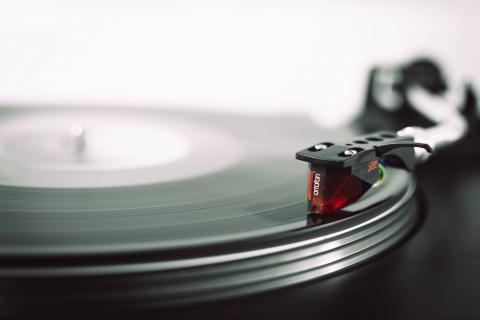
We often associate hearing loss with aging, but the truth is: Hearing loss can occur at any age. Why? Some hearing loss is noise induced. Noise-induced hearing loss occurs when we are exposed to consistent, loud noises, and unfortunately, this type of hearing loss can occur anywhere: at home, at work, or out on the town.
It's more common than you may realize. The National Institute on Deafness and Other Communication Disorders (NIDCD) notes that, each day, more than 50 million Americans are exposed to sound levels that could cause noise-induced hearing loss. As a result, 10 million Americans have already been diagnosed with irreversible, noise-induced hearing loss.
Because noise-induced hearing loss happens so gradually, many individuals don't realize they have been impacted until it's too late. For those who have yet to be impacted, however, there is good news: This type of hearing loss is preventable.
How Does Noise-induced Hearing Loss Occur?
Imagine going for a hike: You hear birds chirping, maybe a creek flowing, or the wind in the trees. Perhaps you hear a sudden rustle in the bushes behind you. You immediately turn around and spot a deer. Our ears were designed to pick up on these subtilties as a means of survival. Nevertheless, the busy, industrialized world of today offers sounds much louder than our ears were designed to handle.
Our ears are able to pick up on soft and subtle sounds, like those described above, through sensory cells called hair cells. At birth, our ears have about 17,000 hair cells. Because of this, as children, we have the capability of hearing the broadest range of sound. As we grow older, however, this range diminishes.
As adults, we are exposed to damaging sound levels by attending concerts, passing construction sites, working with large machinery, and more. Over time, the exposure to these high sound levels kills our hair cells. What's more, these hair cells are not replaced, making noise-induced hearing loss irreversible.
What Can I Do to Prevent Noise-Induced Hearing Loss?
Fortunately, noise-induced hearing loss is almost entirely preventable: Simply take the time to recognize what sound levels could be damaging and take measures to alleviate their impact. For the most part, sound levels of 85 decibels or higher should be avoided. Examples include lawn mowers, mp3 players, or the shot of a firearm. If you find yourself exposed to sounds like these, consider exercising precaution.
The best way to avoid damaging your ears is to be prepared when encountering high sound levels. For example, if you enjoy attending concerts, bring earplugs. If you enjoy hunting, wear earmuffs when firing your gun. Likewise, if you work in an industry that consistently exposes you to loud equipment, the law requires your employer to provide you with hearing protection, so don't be afraid to ask for it.
Don't underestimate the value of working to protect your hearing. In fact, one-third of permanent hearing loss can be prevented by using such strategies. Remember, an ounce of prevention is worth a pound of cure. It is never too early, or too late, to protect the hearing you have.
What If I Already Have Noise-Induced Hearing Loss?
Noise-induced hearing loss often goes undetected until permanent damage has occurred. Signs of noise-induced hearing loss may include: struggling to understand speech (especially after being exposed to noise), ringing/buzzing in your ears (also called tinnitus), or feeling as if you have cottonballs in your ears after exiting a noisy area. If these experiences sound familiar, you may have noise-induced hearing loss.
To counter the effects of noise-induced hearing loss, you will need hearing aids. Here, at Advanced Affordable Hearing, you can purchase a pair of our reasonably priced hearing aids, without taking a trip to the audiologist. To get started, use our Online Hearing Check to determine what level of hearing loss you may have.
Ready to to improve your hearing now? We're happy to help! Please contact us.
To learn more about other causes of hearing loss, take a look at these articles:
